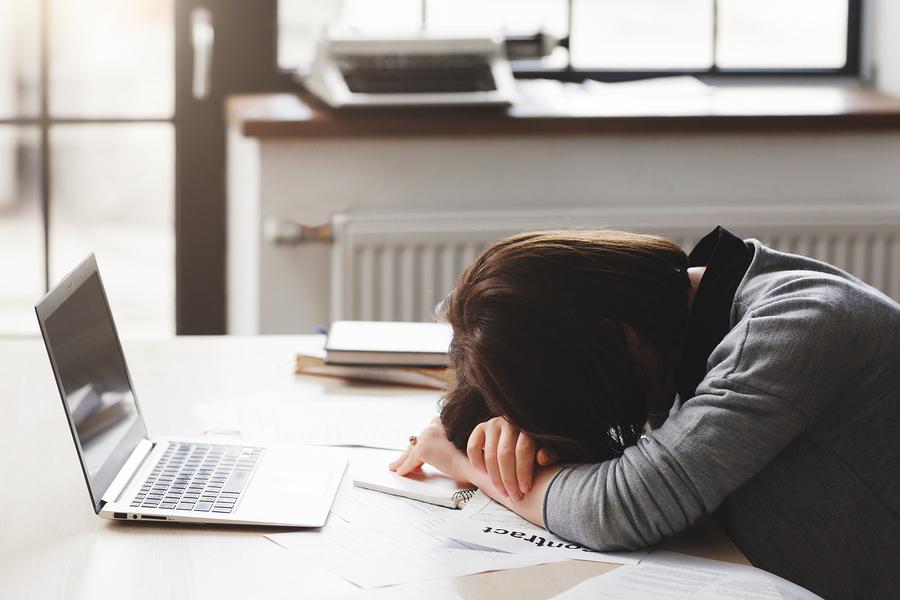Stress is an everyday natural occurrence and is something that we all experience from time to time. It is how your body reacts to any changes in your environment or to demands that are being made of you. Stress can be a good or a bad thing dependent on the situation and how much stress your body is under.
When you are experiencing stress your body will release certain hormones. These hormones will work to make several immediate changes in the body, such as an increased heart rate and a faster pace of breathing. You may experience stress most commonly from your environment, from work, from your family, and from other factors that are out of your control.
The body is designed to react to and control stress in many different ways. Sometimes stress can be a positive thing; i.e. pushing you to finish a project for a deadline or keeping you out of danger. However, chronic stress can cause a multitude of symptoms and negatively affect your overall health.
It is therefore important to be aware of how stress can impact you, and to also be aware of the things in your life that cause you stress. This can prompt you to work to eradicate these things, and in doing so protect your health and happiness!
The Effects of Stress
Too much stress can cause negative physical effects, such as stomach problems, high blood pressure, headaches, trouble sleeping, and tense muscles. Stress needs to be tackled so that these issues do not get worse as time progresses.
A lack of consistent sleep is one of the most worrying of all of these issues, as this in itself can cause such a multitude of other health problems.
Whilst stress is impossible to avoid entirely, there are many ways to manage it in everyday life and to combat these detrimental effects. Each of us is different and you may already have your own ways of tackling stress, but here are some effective ways to help you fight this negativity and to create a greater sense of balance in your life.
Walking
Try going for a 10-15 minute walk. If you are able to go walking for much longer periods of time regularly then that’s great also! Walking can help give you time to relax and increase levels of endorphins, which will reduce stress hormones.
This doesn’t necessarily have to be an extra walk that you add into your day. For example, you may decide to walk to work instead of taking the bus, or to walk home if that suits you better. You could also try walking part of the way to work if it isn’t possible for you to walk the entire distance. The key is simply to get more active whenever it is possible.
Walking gives you the space and time to be alone with your thoughts, which is a fantastic way to process anything that has recently been dwelling on your mind.
Breathing
Another way to help fight feelings of stress is breathing exercises. When you get wound up, your breathing may become erratic. Practicing breathing exercises or just simply taking deep breaths can help to calm you down, reduce tension, and relieve stress.
It is beneficial to try deliberate breathing techniques so that your mind is focused whilst you are engaging in this practice. For example, you may try breathing in for four counts, holding your breath for four counts, and then breathing out for five counts. Repeat this several times until you begin to feel calmer and in control of your emotions.
Music
Studies have shown that classical music has soothing effects, but there is certainly much to be gained from listening to music of any genre!
Music can help to slow your heart rate, lower blood pressure, and decrease stress hormones. Research has also shown the beneficial effects during extremely stressful circumstances, such as a surgical setting.
Stretching
Stretching is known to have a very calming effect on the body. This is one of the reasons that yoga is so fantastic for relaxation purposes.
Stretching your body helps to clear your mind and alleviate tension in places you might be feeling stress, such as your neck, shoulders, and lower back. This is something that you can easily do for a short period of time at the beginning and end of each day.
Optimum Health
Most importantly, if you are feeling the effects of stress, listen to what your body is telling you and take some time for yourself. Your health should always be the most important priority, and decreasing stress will lead to a healthier and better you.
Once you have determined what the most prevalent sources of stress are in your life, then you can take pro-active steps towards resolving these problems!
For further guidance, check out our Top Tips for Tackling Stress!
References
1) http://www.webmd.com/balance/stress-management/effects-of-stress-on-your-body
2) http://www.huffingtonpost.com/2015/09/06/stress-relief-that-works
Related Posts
Cigarettes May Inhibit Inflammation Treatments
Axial spondyloarthritis, also known as AxSpa, is a chronic…










